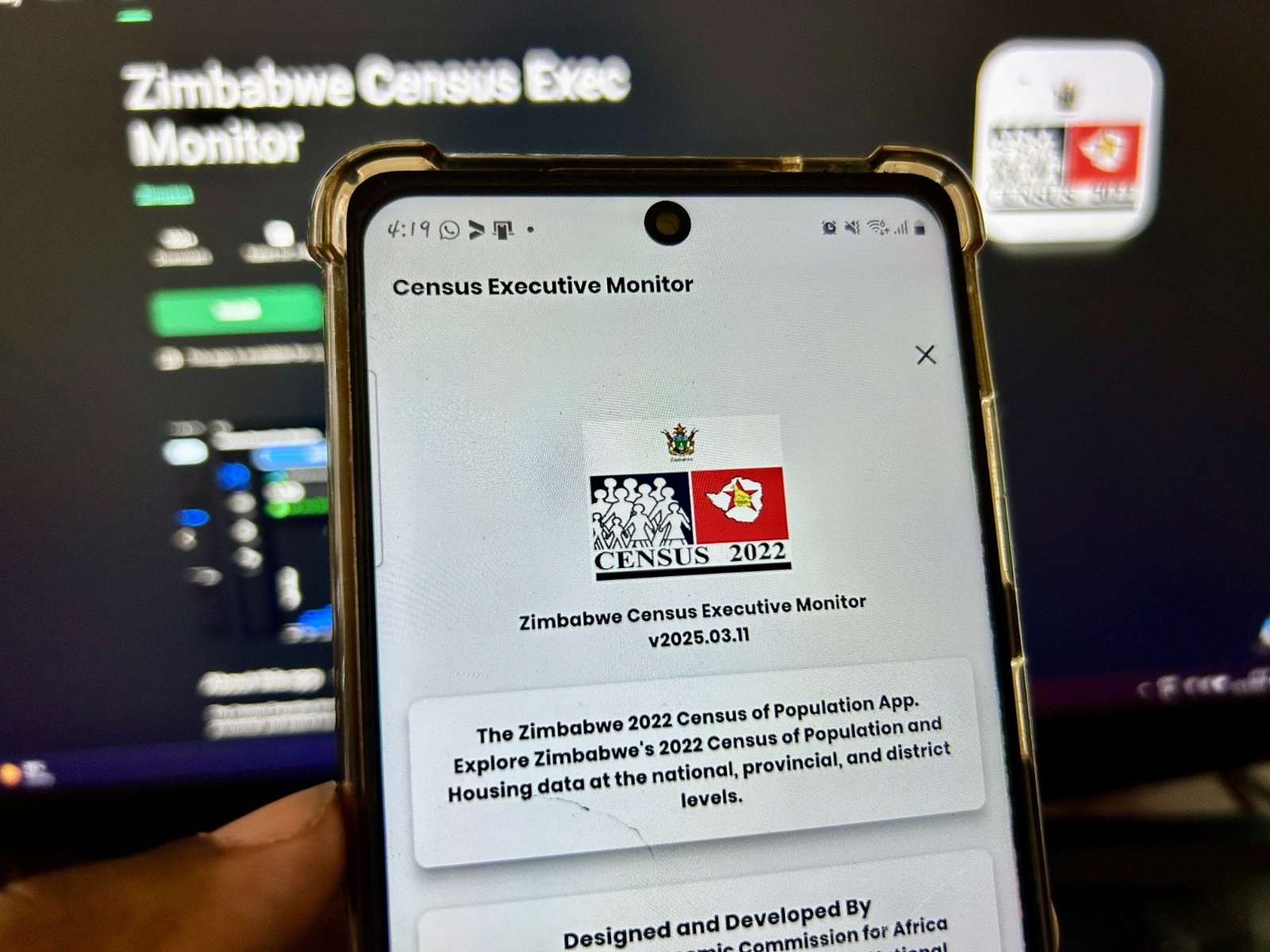This weekend we (my friends and I) decided to have a little get together and watch all the airing football matches together, something that we do every other weekend.
As is also always the case we found ourselves debating over every topic under the sun during the breaks but this time online shopping (specifically why it has not caught on in Zimbabwe) was one of the topics we explored.
A lot of nuggets were unearthed during these escapades and I have decided to share them with you. Please bear in mind some of these strongly worded arguments are not mine, they are just my friends’ crude attempts at candour.
For a long time those in the tech sector have peddled various reasons why e-commerce ,specifically online shopping, has not yet caught on in Zimbabwe. For a long time all the failures of online entrepreneurs were blamed on inadequate payment solutions.
To some people all our woes could be placed squarely on PayPal’s door. The consensus among my friends was that this was rather simplistic and the fact that the arrival of PayPal, the Ecocash MasterCard and the development of Paynow as well as other payment solutions has not resulted in any immediate breakthrough seems to justify this conclusion.
- No culture of online buying- Most Zimbabweans ,it would seem, prefer making their purchases in store because it is the way they have done it for years. People prefer to choose the products and services, feeling them out, taking clothes into change rooms and such. A lot of people for example do not even know what size clothes they wear, they just go into a shop and buy whatever fits. Even when people where making mail orders in developed countries they were still unpopular in this country. Online retailers need to overcome this reluctance shown by people which is no easy task. Few people order their pizza by phone, they have always bought their pizza in store and that is not about to change because PayPal came to Zimbabwe.
- There are no clear advantages to buying online-Right now buying products online in this country is nothing but a mere novelty with no apparent virtues. Why should I buy a pizza online instead of going to the store? Most available online stores have a more limited selection of goods and some even charge a premium when compared to their brick and mortar counterparts.
- Courier problem- Local couriers like to charge a premium and most do not deliver to remote areas-the very places that would benefit from online shopping. For example couriers like DHL, FedEx and UPS do not deliver to most growth points and rural areas and require you to visit one of their urban depots to collect your packages. Why order online when you will have to go to the nearest town to receive the goods anyway? It would help if couriers had an overnight or same-day delivery option that was affordable.
- Most people don’t understand online buying at all- Even when it’s virtues are apparent, most people still don’t get online buying at all. What is it all about? Those involved in the sector must embark on an evangelising exercise extolling its virtues in much the same way pentecostal churches go about their business.
- Coordinated frontal efforts are absent- Zimbabwe is a very small country and all the online selling efforts have been fragmented. There is no Zimbabwean Amazon/e-Bay instead there are a dozen unpopular, some downright ugly sites, some are cheap imitations of their international counterparts lacking most of their functionality, some are broken. Most are geek projects with very little merchandise on them and run by people with little business experience. You would not believe how many sold houses are still listed on some selling websites-some posts were made years ago and there is not monitoring process to weed out sold listings. The big guys like OK, TM and Meikles are not bothered by online selling. It would be very different if say Econet were to make an online Amazon, they have the financial leverage and business acumen to make it work.
- Adolescent payment systems- while we now have payment systems at our disposal most are still in their infancy and are either still in development or the public do not yet understand them well. vPayments for instance would do well to add more banks to their portfolio, EcoCash’s MasterCard solution is just likely to lead to USSD fatigue – Why don’t they just develop an app? EcoCash would also do well with an official API that would ease integration with online stores allowing customers to click and pay instead of going through hurdle after hurdle of USSD codes-it’s so frustrating when the process fails 5 steps down the way.
- Expensive payment systems-compared with going to the bank and making a singular withdrawal most of the payment systems in this country are expensive. For a typical withdrawal you will be charged $3.50 maximum. Swiping your card will incur POS charges per swipe. My bank charges $2 for each swiping transaction. The same fee is levied for online transactions. If you use an EcoCash card you will have to generate a new one every 14 days for a fee.
- Liquidity crunch- people are in a vice they would rather do their purchases the old fashioned way rather than try something new and take on unknown risks of buying online.
- Most local goods are not suitable for online selling-one of the arguments advanced was that since local factories have fallen silent most of the goods sold online are imported goods which we have seen are sold at a premium. It would be cheaper to purchase the items directly from China rather than buy from a local dealer who is selling them at a premium. I mean as long as we are buying online why not just skip the middleman? In our agro-based economy no one is going to buy their tomatoes online.
If some of these problems are to be overcome those of us believers have to “go ye forth and preach the gospel to the unbelievers.” Just like the rugged band of believers in Christ’s time when they received the so-called Great Commission we have to go out and show people the benefits and virtues of e-commerce and online selling.
Perhaps it will become just as popular and come here and be done here as it is in developed countries.














Comments
28 responses
Online commerce is here to stay despite the teething problems. All these problems you listed are part of the learning curve. It wasn’t an overnight thing in USA so it won’t be an overnight thing in Zim. People who offer viable solutions to these hurdles you mentioned will reap large. For instance if an ecommerce friendly logistics firm emerges it will reap more than these dhls and Zimposts
Indeed e- commerce is still is a nascent industry in Zimbabwe but it is surely emerging at an unprecedented growth mode. Telecommunications giants like Econet, however have thwarted the developed of e-commerce and online transcaxtions through forcing everyone to go through the USSD route inorder to do ecocash. Imagine the emergence of the online industry if Ecocash would introduce an official API to allow intergration with online stores, this would remove the ease of going USSD codes and several steps to make an Ecocash transactions. Imagine as well what would happen to Ecocash and online transactions if an Ecocash mobile app is introduced.
Another example of a corporate that has thwarted e-commerce development is ZESA. The downstream online industry that would be created as a result of online platforms being intergration to the ZESA system to retail electricity units is huge. But they decide to monopolise the industry by giving the rights to few incompetent parastatals.
Hi Ngoni its there already
Nice article, bandwidth is also still expensive for one to browse for online products or services. But like Farai says e-commerce is with us but these are just not teething problems, i think service providers need to review their prices for goods\services as well as charges for the payment systems for online shopping.
But i think key is the number of people with disposable income and access to internet outside the workplace. I believe this number is very small and once the number increases online shopping could register an increase in turnover.
Do these retailers have the money for such services before breaking even? Takalot just got $100m from investors and it just started in 2011…..
Watch the space for such an onlineshop soon which adresses some of the concerns you have raise. This online business is here to stay and it will only get better.
Very very low disposable income! Most of the stuff that gets sold online are “luxury” items (by Zim Standard at least). Books, Movies, Quadcopters, Shoes, Games, Electronics etc.
When people purchase clothes online, its usually the expensive stuff that they buy, not School uniforms and toughees.
Random survey (googled “Most popular online products”):
http://www.marketingprofs.com/charts/2013/12195/online-shopping-trends-most-popular-categories-top-purchase-drivers
Personally my issue with online shopping in Zim has been the return policy
Online shopping should add an extra dimension by way of expanding variety of goods available. Suppose I am looking for a particular book title amongst the 40 or so bookshops in Harare. To relieve the stress of hopping from one store to another a site consolidating all titles and reference stores would be ideal . Old habits die hard though . I would probably use the site to get the store info and hop into a combi for a physical purchase!
Sorry fellas but I gotta ask this. Are there any jobs for PHP developers around Zim?
http://www.techzim.co.zw/job/webmaster-web-developer/
While there is substance in your argument, culture changes and it takes few individual go getters to change the culture. There will come a time when not having an online store will be like not having a cellphone. Look at how long it took for people to embrace mobile phone technology. When eccocash started, a lot of people resisted it. If we work together as a force we can become Africa’s Israel as far as tech and onlinr start-ups are concerned… All that will change soon because we are now faced with the internet of all things were almost all devices will be connected to the internet like your fridge, glasses, watch not to mention the television which is already part of this movement
“Look at how long it took for people to embrace mobile phone technology. When eccocash started, a lot of people resisted it. – cellphones were a luxury but due to TelOne’s inefficiency, people had no option but to start making them a basic. Communication is a must between people for what ever reason.
I agree… I think even with the resistance… in the end we are all going to embrace ecommerce in its fullest
I have developed photoorders.strachans.co.zw, with paynow integration. There are still bugs that are getting sorted out and it will get a more user friendly facelift, but generally, users with good internet are starting to prefer this to ordering in store.
Hi Chris, was curious so I went to your site & I could not even upload pictures after registration & confirmation…
What gives?
Our Government wants to make our goods costly by 40-50% by putting custom duty …… why this is not considered when other markets its either free or max 2-3%
I think if we are to easily unlock online payments, we need to have kind of normal goods available online. If we can tell people that you can now buy Zesa online, airtime online etc these kinds of goods it becomes naturally easy for them to buy property, etc online.
These problems can be made easier if we have well informed journalists and bloggers. The EcoCash app was introduced months ago, do even do a research before you write? https://play.google.com/store/apps/details?id=com.econet.ecocash
I think we have well informed journalists and bloggers Ini. Some things may slip some people and lets not rub it in. Remember the slogan asingazive ngaadzidziswe. Lets help one another here if they er.
Oh, I know about the “App.” That is not an App my friend, just a USSD shortcut dialer. You tap on an option and it switches to USSD. To put it in perspective think of it as a car with legs; it would be unwiedly. Frankily I think it-the “App” is moronic.
Thanks Garikai. On friday I will post about an opportunity for young tech geeks… bookmark my blog for more
Online shopping is looking up, its just a matter of time, judging from the number of visitors we have on http://www.bidnbuy.co.zw,, the main drawback i think is that most people prefer South African products instead of local
George, you have a point there. I checked your site. I can also profile you on my blog so we spread the news. Their is no going back with online trading. The world in now a global village and its a matter of time for us to be seemlessly connected to the rest of the world
George, you have a point there. I checked your site. I can also profile you on my blog so we spread the news. Their is no going back with online trading. The world in now a global village and its a matter of time for us to be seemlessly connected to the rest of the world
That will be awesome, thank you Simbarashe
Once we get our logistics function correct, the adoption of online shopping becomes inevitable.
The reason why someone in my rural area of Matenda in Zvishavane will not embrace online shopping is simply because they will have to get on a bus to Masvingo to collect the purchased goods from Dhl. Imagine the safetly compromises they will have to deal with if they are collecting highly expensive products.
So imagine if Zimbabwe had a web of air transport networks; and you are certain that a parcel bought online today in Harare gets on a plane and depart the “Harare Sort Facility” and gets delivered in Murambinda the same morning before 9am, and you can track all this on the “track package” online portal. However, a “web” of air transport network is a funtion of so many economic pointers which needs to be satisfied first… I guess its just a matter of time
It not be trustworth now but they are way we can make people more interested in ecommerce.